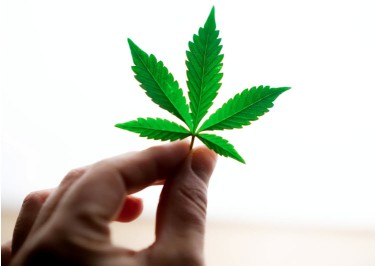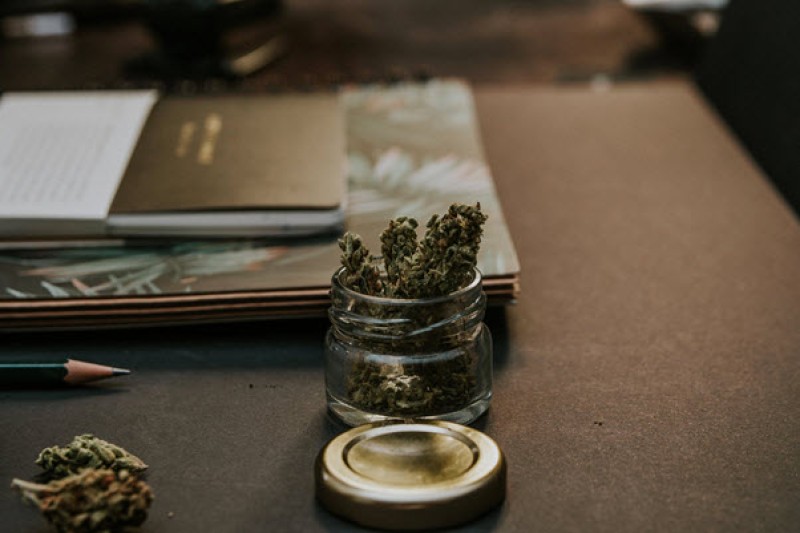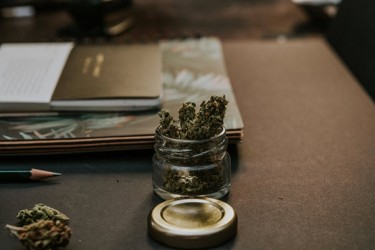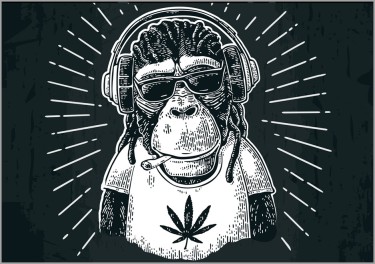Cannabis has been cultivated for over 4,000 years, but its use was banned only in the 20th century. In recent years, the rehabilitation of marijuana has begun in some countries: the decriminalization of its use, the creation of an open market, and research on the impact of the plant on human health. In December 2020, the UN Commission on Narcotic Drugs removed medical cannabis and all its derivatives from the list of critically dangerous drugs. Below, we will explain the impact of cannabis on humans and society.
History of Cultivated Cannabis
The first scientific mention of the weed dates back to 1542 when the German botanist Leonard Fuchs placed a new object called Cannabis sativa on the pages of his book Description of Plants. However, the history of hemp cultivation had begun long before the discovery of Fuchs, as early as 2350 BC. The ancient Egyptians used cannabis for medical and household purposes. The oldest medical prescription dates back to 1700 BC and presents a recipe for eye ointment. Just like our ancestors, we can buy delta 8 THC legally today because cannabis remains an extremely important herb in medicine.
In some regions, the use of marijuana was commonplace: in China, they found the grave of a 45-year-old man (about 750 BC) who belonged to the upper class and had almost 800 grams of weed with him. It is noteworthy that botanical and phytochemical analysis has shown that this is cultivated cannabis: it was not collected as a wild plant, but grown from varieties selected by man according to the criterion of the highest THC content. This suggests that people had discovered the psychotropic effect of the plant and begun to cultivate it for recreation.
The scale of distribution of the plant was enormous – it had been cultivated in Africa, America, and even Europe for many centuries. It was mainly used for household needs and was also added to medicines – sleeping pills, painkillers, sedatives, and laxatives. Despite the great popularity of cannabis around the world, in the 20th century, it was massively banned as the result of the International Opium Convention signed in 1912.

Social Effect: Legalization Reduces Crime
Many economists and sociologists believe that the decriminalization of cannabis can reduce overall crime rates and increase tax revenue. Legalization leads to a regulated open market that guarantees consumers safety and reliable product quality. As a result, black market demand drops, and dubious traders are replaced by business people.
Such policy has already led to a significant reduction in rape and property crimes in the US:
-
In Washington state, the number of adults arrested for marijuana possession decreased by 98%.
-
In Colorado, marijuana growing, distribution and possession rates have dropped by 85%.
-
A similar situation was observed in Alaska and Oregon;
-
In states bordering Mexico, marijuana legalization has resulted in a 15-25% reduction in violent crime.
In 2019, legal cannabis tax revenue in Colorado alone reached a billion dollars. Changes are also taking place in the police system: drug-related crimes are no longer under the constant supervision of law enforcement officers and allow for more attention to other violations of the law.
Decriminalization Trend: The Modern Cannabis Debate
It is believed that the starting point for the active struggle for the legalization of cannabis was 1996 when the use of medical cannabis was allowed in California. Since then, only American activists have succeeded in the fight for decriminalization. Their difference from their European colleagues lies in the legal significance of referendums. In America, it is possible to launch a full-scale campaign to collect signatures and win a vote, but in Europe, even with 99% of the population who signed the petition, the results will not have any power.
For example, in the Netherlands, polls showed 70% support for full marijuana legalization, which is 10 points higher than in the US, but the government still prohibits cannabis-growing initiatives at local coffee shops. In January 2021, the mayor of Amsterdam even proposed to limit the sale of cannabis in cafés to foreigners to limit the flow of tourists coming to the city for soft drugs.
However, over the past 20 years, there has been a trend in European countries towards reducing or even abolishing prison sentences for minor offenses related to the use of cannabis. For example, in 2004 the United Kingdom reclassified cannabis from class B to the lower class C. This allowed the police to focus on the most dangerous class A drugs that cause the most social and economic damage. As for other European states, they decided the following:
-
In 2007, a “Drug Awareness Course” was created in France. The judges can now force cannabis users to attend educational courses rather than get intensive treatment.
-
Portugal decriminalized all drugs in 2000 due to the problem of heroin use in the country.
-
Since 2015, drug addicts have been sent to special rehabilitation courses in Malta.
-
There is still debate in Ireland about whether to follow the Portuguese model of decriminalizing all types of drugs or not.
-
In Italy, following an analysis of national cannabis consumption in 2014, it was concluded that it would not be rational to continue the policy of prohibition. Citizens are allowed to carry 5g with them and keep 15g at home.
Policies of the Legalization Opponents
In some countries of the world, the death sentence is still practiced for drug trafficking. For example, in Singapore, people are sentenced to death for the distribution of more than 500g of marijuana, while in Malaysia – for the possession of 200g. Similar laws also exist in Saudi Arabia, Indonesia, the United Arab Emirates, and China. In Turkey, the possession of cannabis is punishable by a prison term of 4-30 years, and in France, a fine of 200-450 euros or imprisonment for up to one year.
What do you think of cannabis legalization? Do not hesitate to share your opinion with us in the comments and provide your arguments for or against it.
SCIENCE ON CANNABIS, READ MORE...
SCIENCE IS TESTING THC ON MONKEYS TO SEE IF THC CAN HURT YOU








